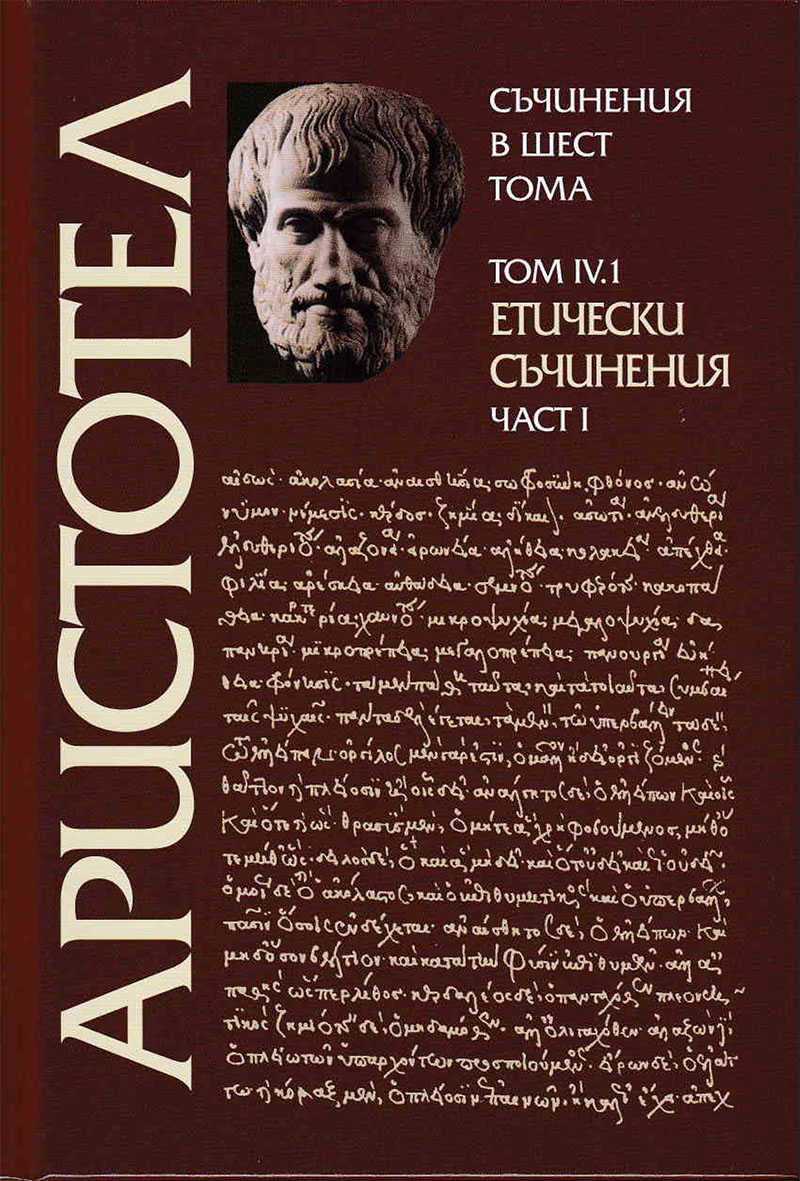Books in series

Aristotle, the Categories on Interpretation, And, Prior Analytics
322

Posterior Analytics/Topica
347

Physics
340

Етически съчинения, част I
2022
Author

384 BC–322 BC Greek philosopher Aristotle, a pupil of Plato and the tutor of Alexander the Great, authored works on ethics, natural sciences, politics, and poetics that profoundly influenced western thought; empirical observation precedes theory, and the syllogism bases logic, the essential method of rational inquiry in his system, which led him to see and to criticize metaphysical excesses. German religious philosopher Saint Albertus Magnus later sought to apply his methods to current scientific questions. Philosophy of Saint Thomas Aquinas, the most influential thinker of the medieval period, combined doctrine of Aristotle within a context of Christianity. Aristotle numbers among the greatest of all time. Almost peerless, he shaped centuries from late antiquity through the Renaissance, and people even today continue to study him with keen, non-antiquarian interest. This prodigious researcher and writer left a great body, perhaps numbering as many as two hundred treatises, from which 31 survive. His extant writings span a wide range of disciplines from mind through aesthetics and rhetoric and into such primary fields as biology; he excelled at detailed plant and animal taxonomy. In all these topics, he provided illumination, met with resistance, sparked debate, and generally stimulated the sustained interest of an abiding readership. Wide range and its remoteness in time defies easy encapsulation. The long history of interpretation and appropriation of texts and themes, spanning over two millennia within a variety of religious and secular traditions, rendered controversial even basic points of interpretation.